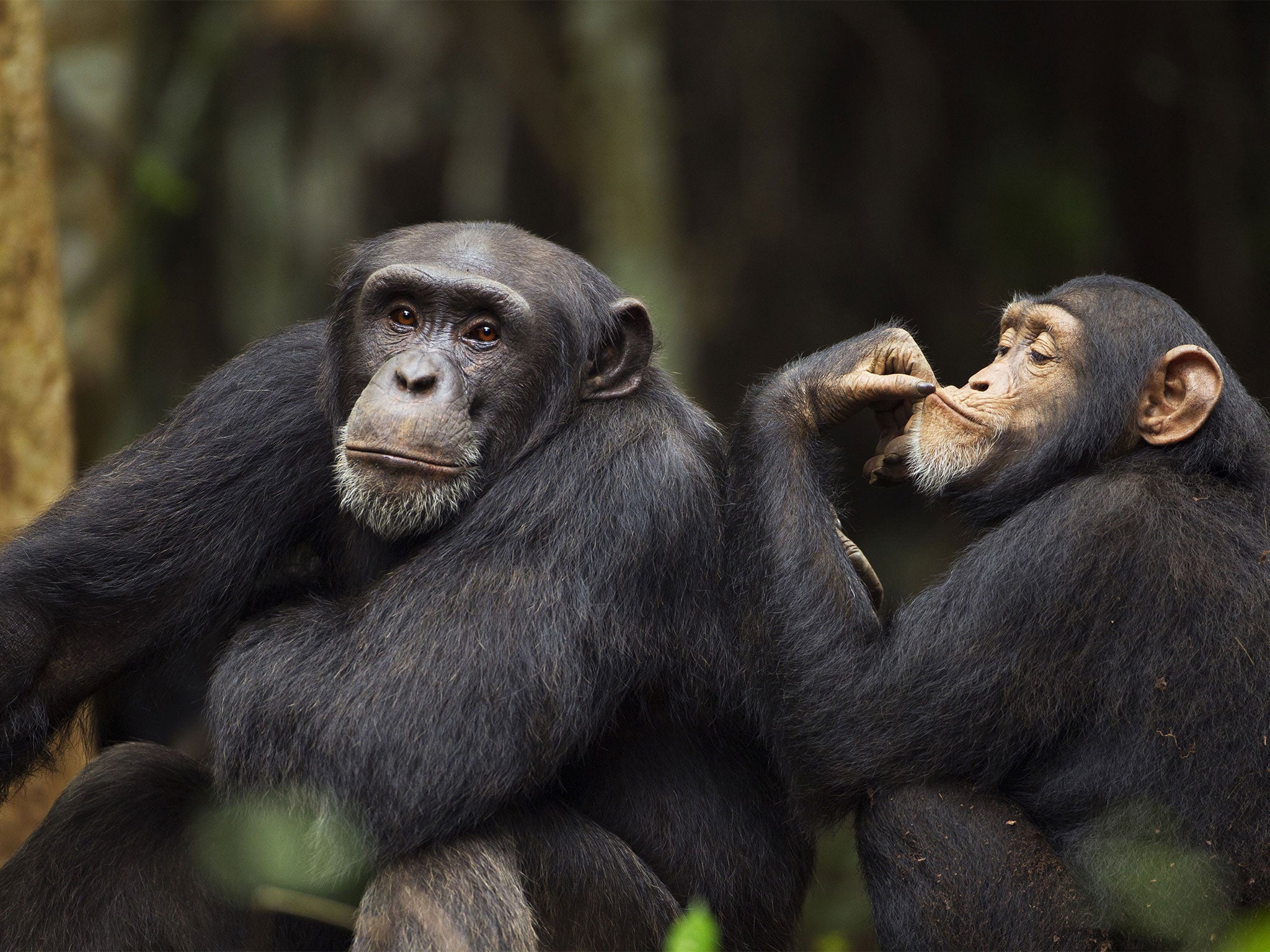Chimpanzees found routinely drinking alcohol in wild
Primates in Guinea drank fermented palm sap using a leafy tool as a sponge

Your support helps us to tell the story
From reproductive rights to climate change to Big Tech, The Independent is on the ground when the story is developing. Whether it's investigating the financials of Elon Musk's pro-Trump PAC or producing our latest documentary, 'The A Word', which shines a light on the American women fighting for reproductive rights, we know how important it is to parse out the facts from the messaging.
At such a critical moment in US history, we need reporters on the ground. Your donation allows us to keep sending journalists to speak to both sides of the story.
The Independent is trusted by Americans across the entire political spectrum. And unlike many other quality news outlets, we choose not to lock Americans out of our reporting and analysis with paywalls. We believe quality journalism should be available to everyone, paid for by those who can afford it.
Your support makes all the difference.Scientists have discovered a group of booze-loving apes who may hold the key to why humans enjoy drinking alcohol.
Experts say they have found the first empirical evidence of “long term and recurrent ingestion of ethanol” among apes in nature.
They observed wild chimpanzees in the town of Bossou in Guinea, west Africa, over 17 years and watched as the primates drank fermented palm sap using a leafy tool as a sponge.
The chimpanzees consumed the alcoholic beverage, often in large quantities, despite an alcohol presence of up to 6.9 per cent ABV - the equivalent of a strong ale, according to a study published by the Royal Society.
The report's authors say the results support the idea that the last common ancestor of living African apes and modern humans were “not averse to ingesting foods containing ethanol.”
They added that the findings should also prompt further tests of the “drunken monkey hypothesis”, which proposes that human attraction to alcohol may derive from dependence of primate ancestors on ripe and fermenting fruit.
According to the study, called “Tools to tipple: ethanol ingestion by wild chimpanzees using leaf-sponges”, researchers watched 51 fermented palm sap drinking events involving 13 chimpanzees between 1995 and 2012.
One of the study's authors, Dr Kimberley Hockings, from Oxford Brooks University, wrote: “Some of the chimpanzees at Bossou consumed significant quantities of ethanol and displayed behavioural signs of inebriation.
“Researchers rarely collected detailed behavioural data before versus after exposure to ethanol, but some drinkers rested directly after imbibing fermented sap.”
Drinking sessions occurred across different months at various times of the day, with no evidence of chimpanzees ingesting palm sap at night, according to the study.
The amount of alcohol ingested ranged from about 2.5 to 84ml and there was no difference between males and females.
Experts said that, unlike other examples of primates ingesting alcohol, such as introduced green monkeys targeting tourist cocktails in the Caribbean, the chimpanzees' attraction to fermented palm sap at Bossou was not a result of provisioning by local people.
PA
Join our commenting forum
Join thought-provoking conversations, follow other Independent readers and see their replies
Comments